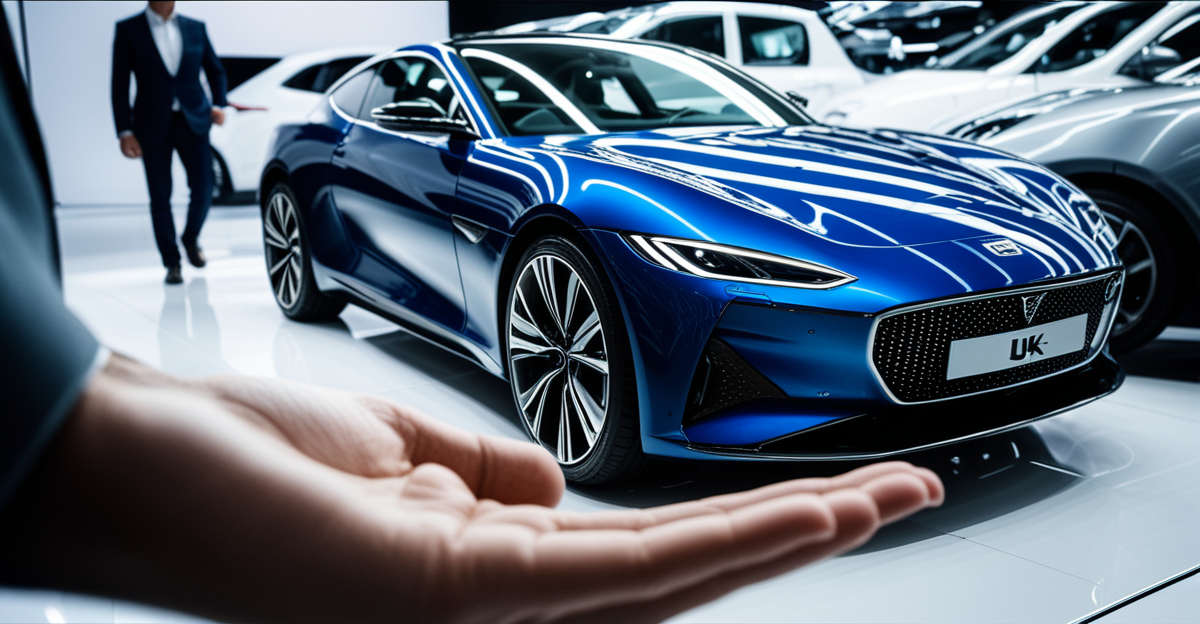The impact of technological advancements on UK automotive design
Technological advancements have fundamentally reshaped automotive technology within the UK car industry, driving a significant design evolution. Among these, artificial intelligence (AI), electrification, and automation stand out as key forces redefining vehicle engineering and aesthetics. AI integration allows engineers to simulate complex scenarios, optimizing performance and safety before physical prototypes exist. This revolutionizes traditional manufacturing processes, enhancing precision and efficiency in UK factories.
Electrification, beyond powering vehicles cleanly, influences design by demanding innovative battery placements and thermal management systems. This compels designers to rethink vehicle architecture, often resulting in sleeker and more spacious interiors. Automation complements this shift through robotic assembly lines, ensuring consistent quality and enabling intricate designs previously unfeasible.
Have you seen this : How Will Autonomous Cars Transform Urban Living in the UK?
The visual language of UK automotive design also adapts, blending cutting-edge functionality with modern stylistic elements. Smooth surfaces, aerodynamic forms, and minimalist features reflect both technological capability and consumer demand. As such, recent innovations are not isolated technical upgrades but catalysts for broader changes, cementing the UK’s role in pioneering advanced, thoughtfully engineered vehicles.
Electric vehicles and sustainability shaping design direction
Electric vehicles (EVs) are fundamentally redefining UK car design, steering the industry towards sustainable automotive design. UK manufacturers prioritize eco-friendly innovations by integrating recyclable and lightweight materials such as aluminum alloys and bio-based composites. These choices reduce vehicle weight, thereby improving energy efficiency and extending driving range.
Also to discover : How is the UK automotive industry navigating the transition to electric vehicles?
Sustainability efforts also drive innovation in battery packaging and thermal management. Unlike traditional engines, EVs require strategic battery placement that influences chassis architecture and interior space utilization. Designers in the UK car industry leverage this flexibility to create spacious cabins with minimalist aesthetics, aligning with consumer preferences for environmentally conscious vehicles.
Leading UK automakers incorporate closed-loop recycling processes to reuse materials, minimizing environmental impact throughout the vehicle life cycle. This comprehensive approach to sustainable automotive design not only fulfills regulatory demands but also resonates with evolving market values.
By combining electric vehicle technology with sustainability-focused engineering, UK manufacturers exemplify a commitment to reducing carbon footprints without compromising performance or style. This synergy between eco-consciousness and innovation marks a pivotal shift in UK automotive design, one that promises lasting benefits for both consumers and the environment.
AI and automation transforming engineering and safety
Artificial intelligence (AI) and automation are pivotal in advancing engineering processes and enhancing safety within the UK car industry. AI in automotive applications uses vast data sets to enable real-time analysis, optimizing vehicle structures for better crashworthiness and durability. This leads to safer, more resilient vehicles, validated through simulations before any physical prototyping occurs.
Automation supports this evolution by increasing precision and repeatability in manufacturing. Robotic systems assemble components with exacting accuracy, reducing human error and ensuring consistent quality across production lines. This synergy between AI and automation underpins complex design implementations impossible to achieve manually, fostering innovative vehicle architecture.
Moreover, AI-driven safety innovations extend beyond structural improvements. Advanced driver assistance systems (ADAS), powered by AI algorithms, enhance situational awareness and decision-making. Features such as adaptive cruise control, lane-keeping assist, and emergency braking exemplify how autonomous technology is becoming integral to UK vehicles, promising reduced accidents and improved driver confidence.
Together, AI and automation not only streamline design and production but also elevate safety standards, positioning the UK automotive industry at the forefront of next-generation vehicle innovation.
Notable examples from UK manufacturers and industry insights
The UK car industry boasts pioneering companies like Jaguar Land Rover, Aston Martin, and McLaren, each showcasing remarkable design evolution through recent innovations. Jaguar Land Rover integrates cutting-edge automotive technology by blending electrification and AI-driven systems, enhancing both performance and luxury. Aston Martin focuses on lightweight materials and aerodynamic refinement, enabling sleek aesthetics without sacrificing power. McLaren’s advanced automation techniques facilitate intricate carbon-fiber structures, illustrating how engineering precision supports bold design.
Industry leaders emphasize that these examples highlight the balance between tradition and innovation in UK automotive design. Experts note that British automotive companies consistently push boundaries, blending heritage with modern tech to meet evolving consumer and regulatory demands. This approach fosters notable design shifts like minimalist interiors and sculpted exteriors, reflecting broader trends in the market.
Moreover, expert analysis points out how UK manufacturers leverage data and AI to personalize driving experiences, reinforcing a competitive edge. These insights underscore the dynamic nature of UK automotive innovation, where technology and creativity intersect, ensuring the industry remains a global leader in automotive design and engineering.
Future trends and ongoing challenges in UK automotive design
The future of automotive design in the UK hinges on rapidly evolving technologies and complex industry challenges. Emerging trends include advanced AI integration, next-generation electrification methods, and immersive user experience features. These innovations promise further design evolution, enabling vehicles that are more adaptive, connected, and sustainable.
However, the UK car industry faces significant hurdles. Infrastructure development, such as expanded electric charging networks, is essential to support widespread adoption of electric vehicles. Regulatory frameworks must also keep pace with technological advances to ensure safety without stifling innovation. Market acceptance remains a challenge, as consumers weigh new technologies against cost and usability concerns.
Design trends reflect this balance between innovation and practicality. UK manufacturers increasingly explore modular architectures allowing greater customization while facilitating efficient production. Additionally, sustainability will continue guiding material selection and manufacturing methods, reinforcing the industry’s eco-conscious commitment.
In conclusion, UK automotive innovation is poised to advance, but its trajectory depends on overcoming infrastructural, regulatory, and market obstacles. Understanding these challenges while embracing future technologies will be crucial for sustained leadership in automotive design. This dynamic outlook encourages ongoing adaptation and creative problem-solving within the sector.




